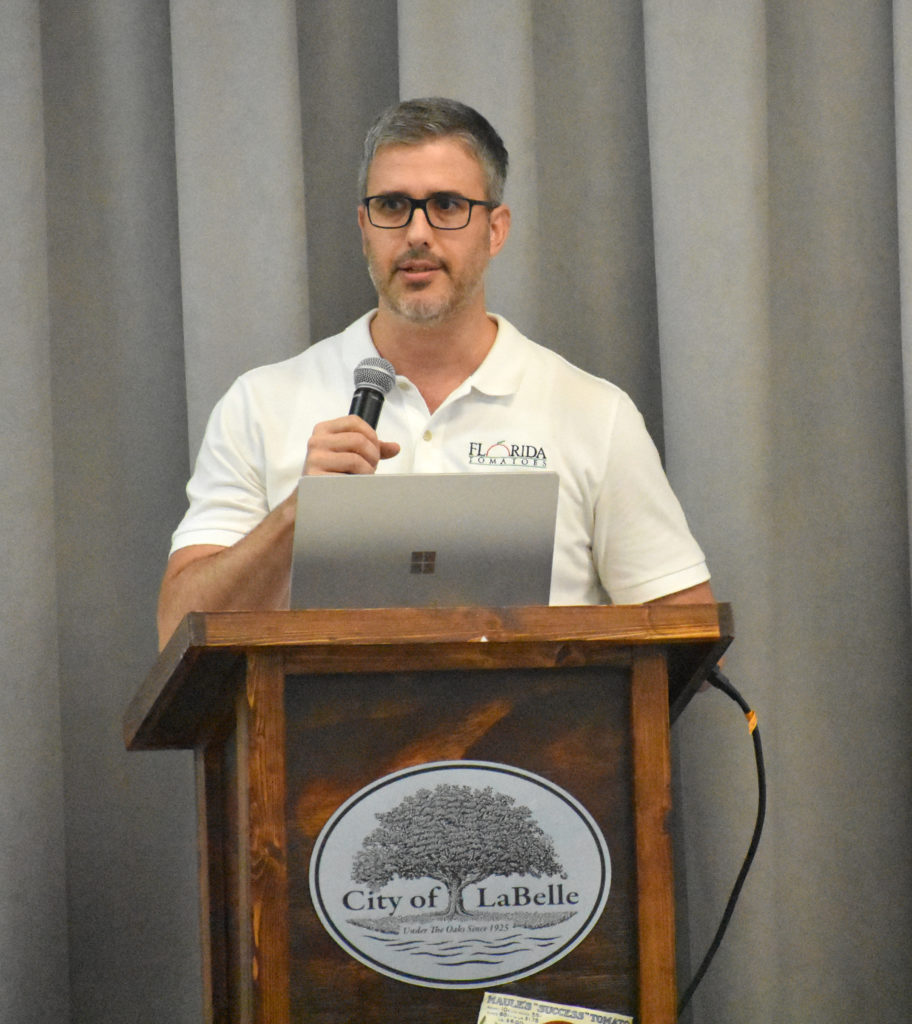By Clint Thompson
Florida’s controversial immigration law could affect the labor force available for the state’s specialty crop producers this year. That includes the tomato industry.

Michael Schadler, manager of the Florida Tomato Committee and executive vice president of the Florida Tomato Exchange, spoke during Wednesday’s Tomato Conference in Labelle. He highlighted the law and how growers could be impacted.
“As far as the new law that went into effect in July, we’re still a little uncertain as to how that’s going to play out,” Schadler said. “We have workers that will be returning from up north in October in a big way. We are wondering if there will be less returning than in other years, either, because of what the letter of the law says, or in some cases, maybe some misunderstanding of what the law says or fear that it will be applied in ways it actually will not be.”
Florida Governor Ron DeSantis signed Senate Bill 1718 in May. The legislation made using E-Verify mandatory for any employer with 25 or more employees, among other requirements. Schadler is concerned for his growers about their labor force once harvesting begins in a few weeks.
“Hopefully, this new law won’t be too big of an impact for our industry,” Schadler said.
H-2A Program
He elaborated on the current labor crisis and discussed farmers’ reluctancy in utilizing the H-2A program. The H-2A program allows U.S. employers or U.S. agents who meet specific regulatory requirements to bring foreign nationals to the United States to fill temporary agricultural jobs.
“On one hand we’re thankful that the H-2A exists, but on the other hand, the fact that it is challenging to use is an indicator of just how tight the labor market is. If people had a choice, they wouldn’t use it. It’s cumbersome, it’s expensive. The fact that so many people are using it shows just how tough the problem is,” Schadler said.
Harvests Will Soon Begin
The tomato crop is just weeks away from being harvested in parts of Florida. Growers dodged a major challenge when Hurricane Idalia spared most of the tomato-growing regions.
“When the hurricane hit, we had stuff in the ground for a few weeks at least. The plants that were in the ground fared well. We actually needed the rain,” Schadler said. “The plants were still young enough that they’re pretty resilient and didn’t get beat up. The path of the hurricane split the two tomato growing regions that are in season now; North Florida, South Georgia, up around Quincy, and then the central Florida crop which is in Manatee County, Southeast Hillsborough County. The position of the hurricane was fortunate for most tomato growers.
“The season looks good. All of the crops I’ve seen look good. People are optimistic that, production wise, we’re going to have a good season.”









